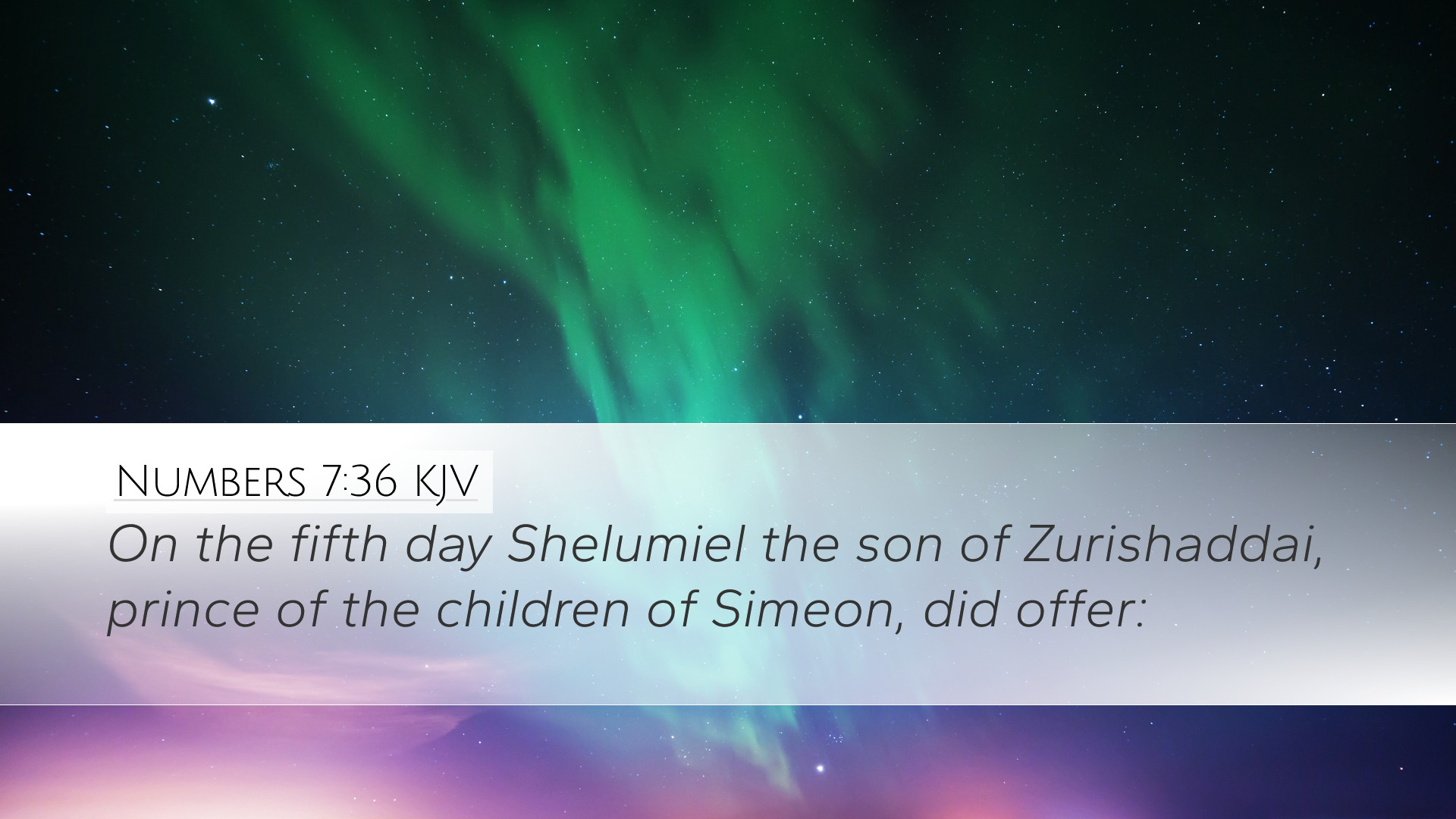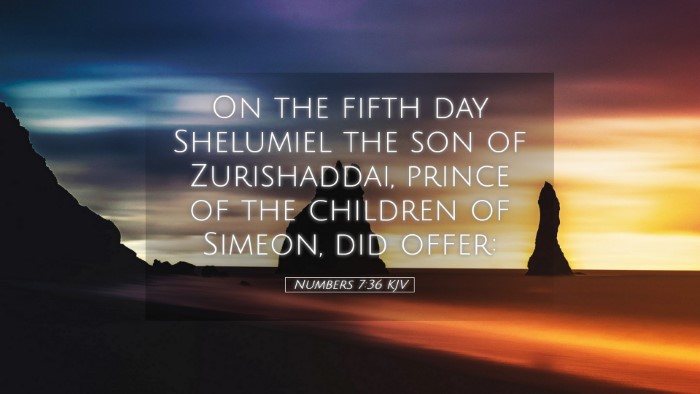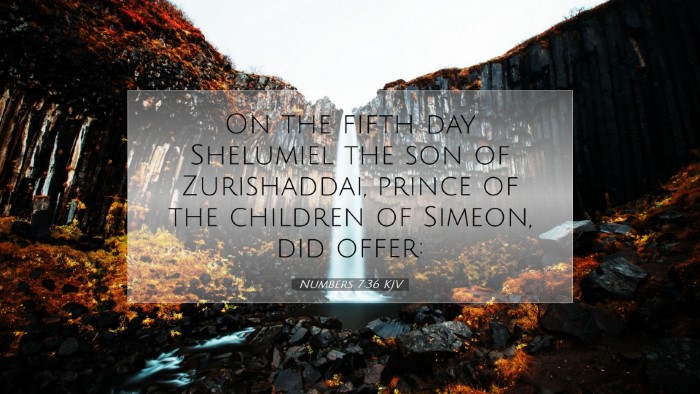Commentary on Numbers 7:36
Numbers 7:36 states: "On the sixth day Eliasaph the son of Deuel, prince of the children of Gad, offered." This verse is part of the larger context of the offerings made by the leaders of Israel at the dedication of the altar, presenting a significant moment in Israel's journey through the wilderness. The verse highlights the organized leadership among the tribes of Israel as well as the importance of communal participation in worship.
Contextual Overview
The Book of Numbers serves as a record of Israel’s journey and the establishment of their covenant with God. In chapters 7 through 9, Moses details the offerings made by the leaders of Israel following the dedication of the tabernacle. Each tribe contributed specific offerings, emphasizing their dedication to God and the unity of the community.
Commentary Insights
Leadership and Responsibility
Matthew Henry notes that the princes represented their tribes, affirming that leadership carries the responsibility of worship and devotion to God. The offering by Eliasaph, as the prince of Gad, signifies the collective identity of the tribes and their shared covenant with God.
Henry further elaborates on the significance of these offerings, stating that they demonstrate the external expression of an internal faith, vital for maintaining systematized worship in Israel.
The Symbolism of Offerings
Albert Barnes emphasizes the importance of offerings in the Old Testament as an act of devotion and a means of seeking favor with God. The offering made by Eliasaph is not merely a ritual but rather a heartfelt contribution reflecting the people’s gratitude and acknowledgment of God’s sovereignty.
Meaning of the Tribe of Gad
Adam Clarke notes that the tribe of Gad was known for its warrior spirit and bravery. The offering from Gad reflects not only their commitment to worship but also their readiness to serve and protect the community as defined by their tribal characteristics.
Application for Modern Faith Communities
The act of offering, as illustrated in Numbers 7:36, remains relevant for today’s faith communities. It encourages believers to reflect on their commitments to God, their offerings, and their roles within their religious communities.
- Spiritual Leadership: Leaders within the church are called to set an example in their devotion and service, similar to the princes of Israel.
- Community Participation: This verse underscores the importance of collective worship and participation as a community of faith, encouraging active involvement from all members.
- Understanding Sacrifice: The significance of offering speaks to the broader principle of sacrifice and dedication in the life of a believer today.
Theological Reflections
In examining this verse, students and theologians can engage in deeper theological reflections regarding the nature of worship, the significance of community in religious practice, and the call to dedicated leadership.
- Worship as a Collective Act: Reflecting on the communal nature of worship within the context of numbers, believers are encouraged to see their participation as integral to the body of Christ.
- The Role of Leaders in Worship: The principle of leadership is further developed in the New Testament, where spiritual leaders are called to guide the congregation in faith and devotion.
- Justice and Mercy in Offerings: The idea that offerings should reflect the heart’s intentions encourages a deeper look into how believers approach sacrifices in their lives today.
Conclusion
In summary, Numbers 7:36 reveals not only a moment of historical significance in Israel's journey but also serves as a timeless reminder of the importance of collective worship, leadership, and the meaning of offerings in the life of a believer. By reflecting on this scripture, pastors, students, and theologians can draw insights that encourage both personal spiritual growth and community engagement within the church. The acts of dedication portrayed in this verse challenge modern believers to consider how they contribute to their faith communities and the offering they bring before God.


